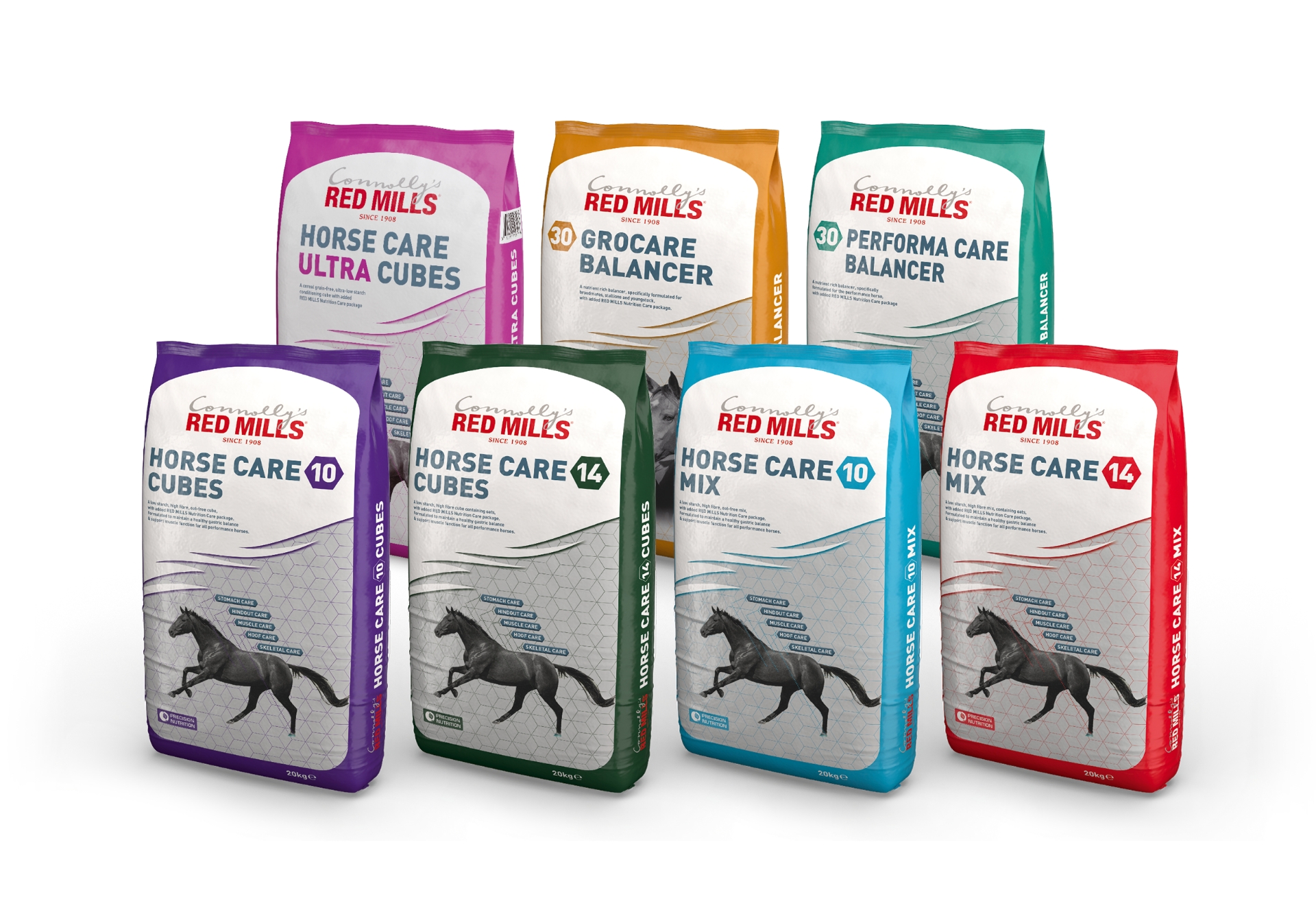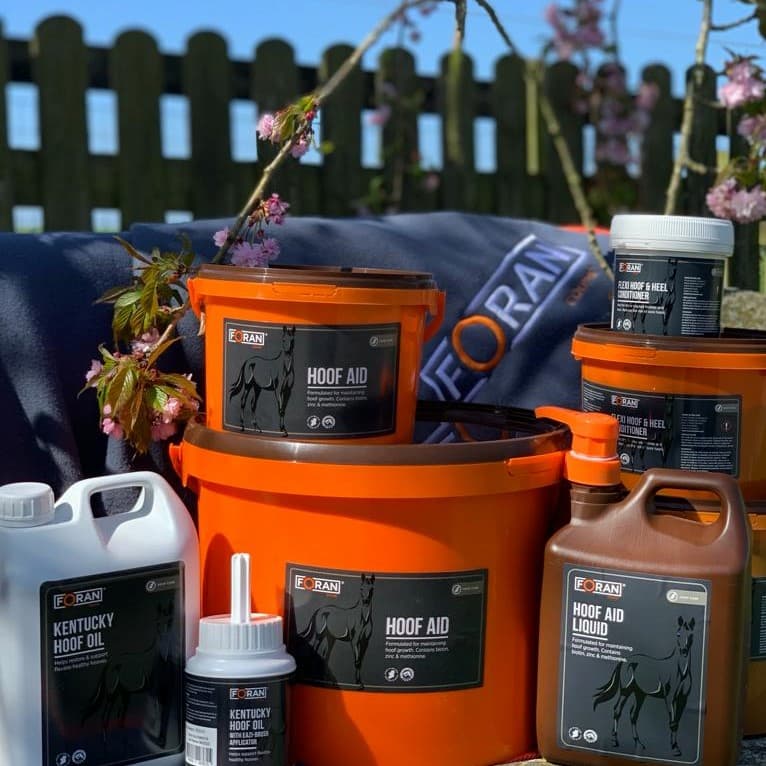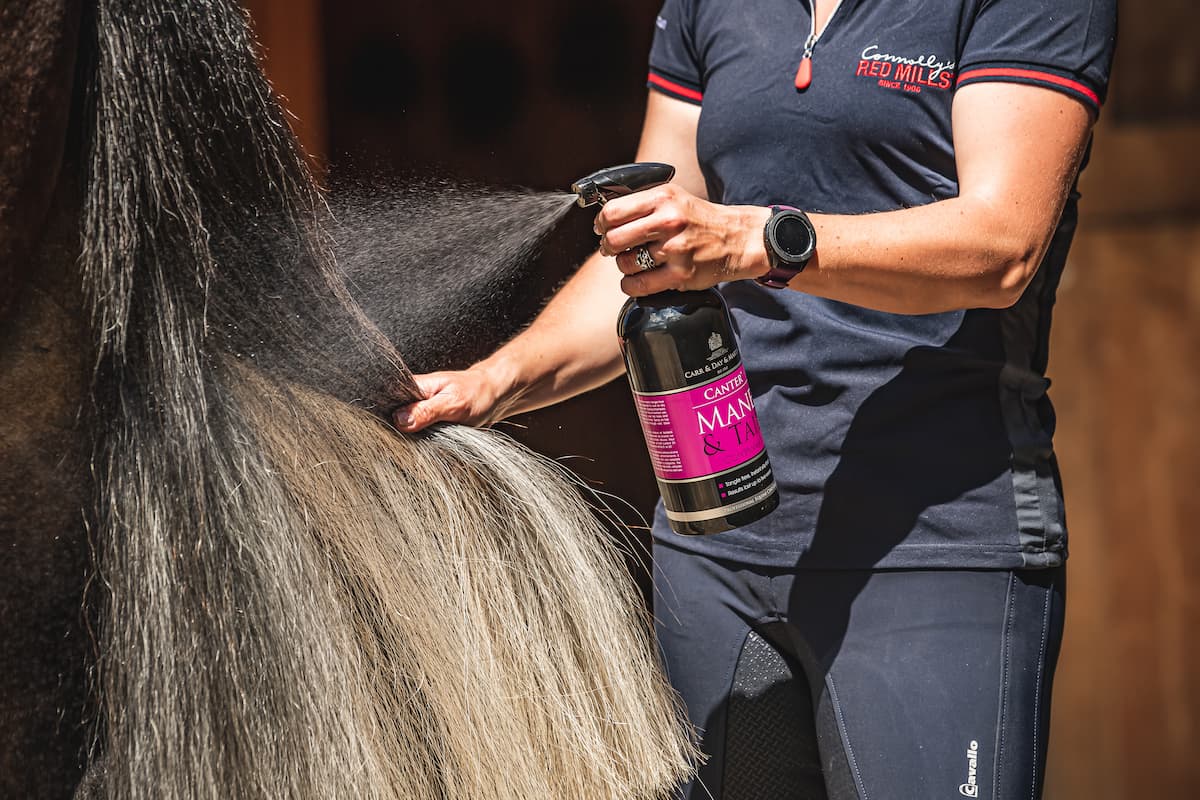May, 2022
What is starch?
Starch is a non-structural carbohydrate composed of long chains of glucose (sugar) molecules (Figure 1). Plants store starch within their cell walls so that it can be used as an energy source for plant growth or development. Although cereals such as maize and barley tend to contain higher levels of starch, almost everything the horse eats, including grass, hay or haylage will contribute to the total amount of starch eaten per day.
When the horse consumes starch, the glucose molecules are primarily broken down in the small intestine by an enzyme called amylase and are then absorbed into the bloodstream. In healthy horses, this rise in blood glucose levels triggers the release of insulin from the pancreas, which enables glucose to enter insulin sensitive cells, such as muscle. All horses need some starch in their diets, as it is used to fuel essential bodily functions and exercise.
Does starch affect my horse’s behaviour?
Feed cannot change your horse’s underlying nature, so unfortunately what you put in your horse’s bucket cannot turn a fizzy Thoroughbred into a laid back Cob or vice versa. However, carefully selecting the type of energy (calories) you provide can help to promote the desired behaviour. For example, if your horse is overly excitable, feeds that are based on slow releasing energy sources, (i.e. fibre and oil) can help to encourage an even temperament. On the other hand, if you have a laid back horse that lacks sparkle, feeds that are higher in cereals and starch can be beneficial.
The importance of meal size & cooking on starch digestion.
Feeding large, unprocessed cereal based meals increases the risk of undigested starch reaching the hindgut. Once in the hindgut the starch is rapidly fermented by lactic acid producing bacteria. This creates a more acidic environment in the hindgut (lowering the pH), a state known as hindgut acidosis, which can lead to several problems including colic.
To avoid the risk of starch entering the hind-gut it’s important to keep meal size small, ideally no more than 400g/ 100kg bodyweight per meal. Connolly’s RED MILLS also use advanced cooking technology, including steam flaking and double pelleting, to increase the starch digestibility in the small intestine and minimize the risk of undigested starch reaching the hind-gut (Figure 2).
Figure 2 Effect of Processing & Cooking on Small Intestine Digestibility of Maize % (adapted from Meyer et al, 1993)
What is a high starch or low starch diet?
Limited research is available about exactly how much starch the horse can tolerate in their diet and it is likely that this varies depending on the individual. When assessing your horse’s diet, it is important not only to look at the percentage starch in the hard feed but also the overall daily intake, including that from grass and hay / haylage, and to also consider the amount of starch fed per meal. For example, if feeding a horse a 2kg meal of a feed containing 18% starch twice per day the total daily starch intake will be 720g and the amount per meal is 360g, whereas feeding a 2kg meal of a feed containing 36% starch once per day provides the same amount of starch per meal, but only half the daily amount of starch.
Most concentrate feeds contain around 20-30% starch. However, low starch feeds containing less than 20% starch (e.g. Connolly’s RED MILLS Horse Care 10 and 14 Cubes) and ultra-low starch feeds containing less than 5% starch (e.g. Connolly’s RED MILLS PerformaCare and GROCARE Balancer) are also available.
Does my horse need a low starch diet?
If your horse is healthy, performing well and is fed plenty of forage you probably do not need to worry about how much starch he is consuming. However, if your horse is overly excitable or prone certain problems such as gastric ulcers, tying up, Cushing’s (PPID), Equine Metabolic Syndrome (EMS) feeding a lower starch diet is recommended.
Contact our sales team via WhatsApp or email

Nicolas Gaumerais
Group Commercial Manager GCC Region
Based in the UAE, Nicolas Gaumerais is the Commercial Manager of Connolly's RED MILLS Group which includes Connolly's RED MILLS horse feeds and Foran Equine supplements sold in the GCC region. Nicholas regularly travels across the Gulf to meet customers.

Dominic Bligh
Group Commercial and Technical Executive GCC Region
Alternatively, reach out to Dominic Bligh who offers nutritional & technical support for Connolly's REDMILLS Feed and Foran Equine supplements. Dominic is also the Commercial Manager for Foran Equine Supplements. He regularly visits client's stables in the Middle East to advise on bespoke feeding programmes.









